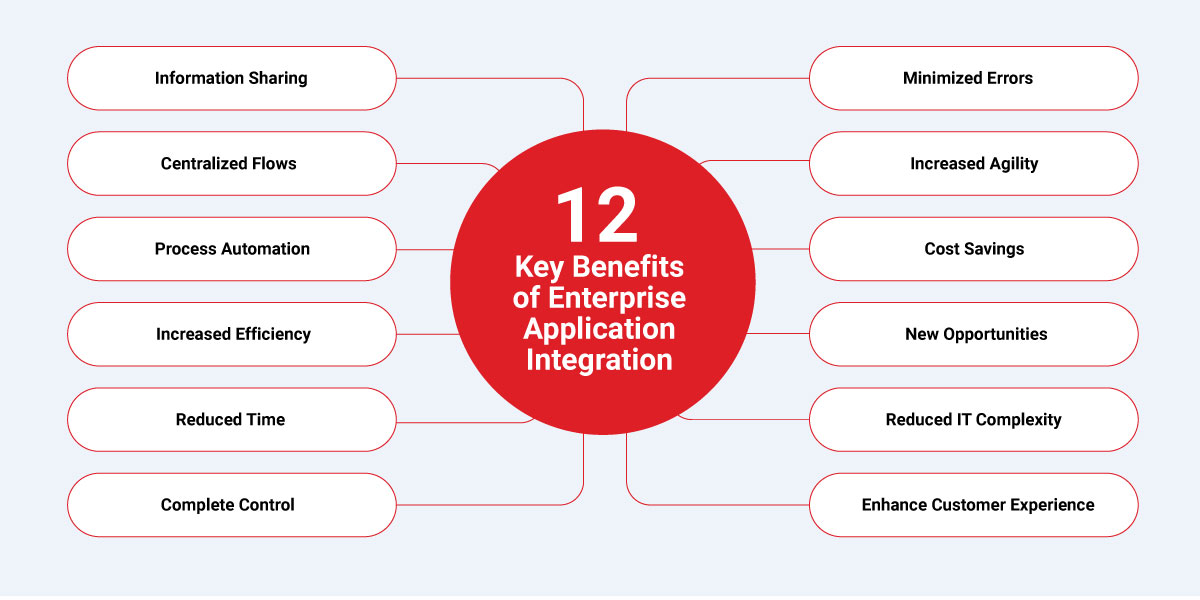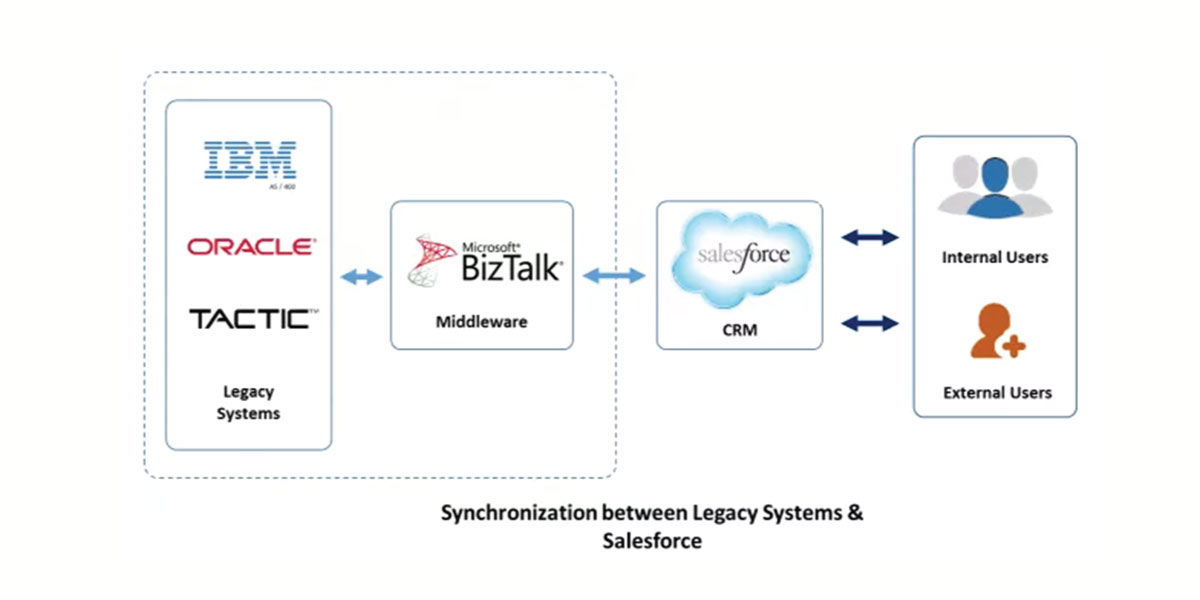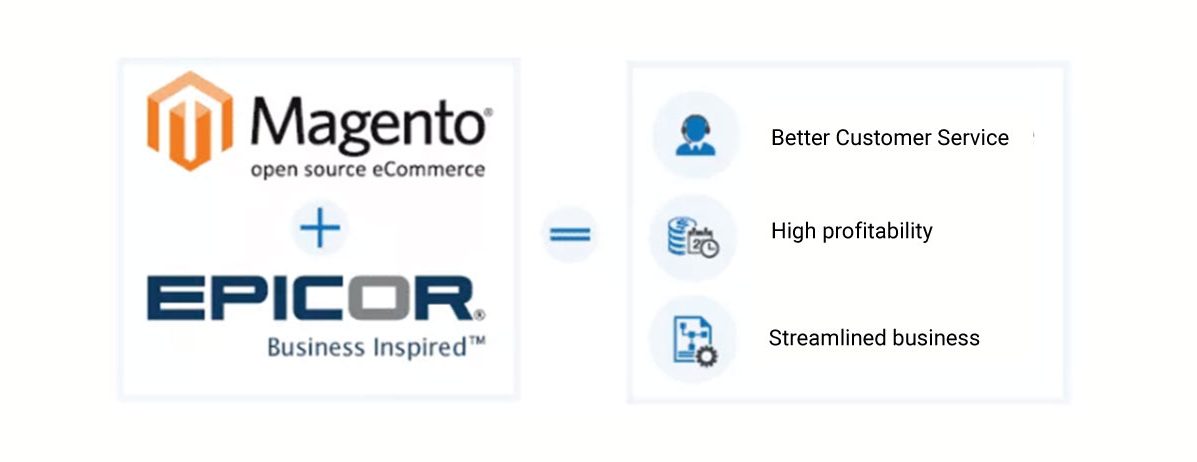Enterprise Application Integration (EAI) has emerged as a critical solution for modern businesses aiming to streamline operations, enhance productivity, and achieve seamless data flow across diverse systems. And, as organizations continue to cope with complex technology landscapes and the need for real-time information exchange, EAI offers a game-changing approach. From employee time tracking to supply chain management, the real challenge is integrating disparate, multiple applications so that they work together smoothly. Organizations can leverage the benefits of enterprise application integration by connecting disparate applications, data sources, and business processes. It would enable them to achieve greater efficiency, improved decision-making, and a competitive edge in the ever-evolving market.
So, what are the actual benefits of enterprise application integration for different companies? Read on as we try to demystify the fascinating benefits of EAI for businesses. This blog aims to delve deeper into understanding this concept and its approach. So, let’s begin!
What is Enterprise Application Integration?
Enterprise Application Integration refers to an approach or set of techniques to facilitate the seamless integration of various software applications and systems within an organization. It would involve connecting disparate applications, databases, platforms, and processes to enable the seamless flow of data and information in a unified and coordinated manner.
However, industries base their activities on different systems and applications. They help stimulate growth and improve the company’s performance. EAI aims to address the challenge of information silos and system incompatibility. It helps provide a framework to integrate different applications, such as;
- Human Resource Management System (HRMS)
- Enterprise Resource Planning (ERP)
- Customer Relationship Management (CRM)
- Supply chain management (SCM)
- Business Intelligence and Analytics
- Communications (Both Inbound and Outbound)
- eCommerce Portal
The said independent systems and applications achieve what they require for a specific purpose. The only downside is that they work in isolation, causing congestion in the performance of business processes and problems that can add additional financial risk to the organization. And by integrating these applications, organizations can achieve real-time data synchronization, workflow automation, and efficient communication between different departments & systems. It has become an essential component of the digital transformation strategy for businesses today.
Read this blog about Enterprise Application Integration to understand the concept, approach, how it works, best practices, and how your business would benefit from it.
Benefits of Enterprise Application Integration
The advantages of enterprise application integration help transform how organizations operate in today’s dynamic business landscape. In this section, let’s explore some of the critical benefits of EAI that could help you gain a competitive edge, optimize resource utilization, and pave the way for sustainable growth and success.

- Information Sharing: EAI helps consolidate data across individual systems to create a single access point. It saves time searching for information and allows users from different departments to access updated data. It also improves collaboration between individuals from multiple departments and facilitates data-backed decision-making.
- Centralized Flows: Previously, companies had to develop application-specific interfaces and connect them point-to-point as required. It resulted in a complex IT network that was challenging to maintain and evolve. With EAI, converging all interfaces to a central server (hub) that processes and redistributes flows to registered applications is possible.
- Process Automation: The EAI platform eliminates manual errors by automating systems and processes. It reduces process time and increases the accuracy of information for users and customers. It bridges the gap between different systems so data can flow smoothly between applications. It eventually improves business processes and enhances the transparency of financial workflows.
- Increased Efficiency: Enterprise Application Integration benefits the organization’s overall efficiency by streamlining the business processes. It makes communication easier between different departments and your employees and customers. EAI reduces the time and effort in carrying out business operations while offering better functionality and control. It leads to enhanced capabilities required to address changes in market trends, manage reputation, supply chain disruption issues, etc. For instance, a retail company can benefit from EAI by integrating its sales channels, eCommerce, and ERP platforms to drive revenue and encourage consumers to interact with their favorite retail brands.
- Reduced Time: EAI significantly reduces the time needed to integrate new data or redesign processes. It makes the information system responsive to your company’s operational or strategic requirements. Moreover, it establishes a link between two or more platforms. Thus, the data from one platform are accessed by the other platforms meant to be integrated.
- Complete Control: One of the critical advantages of EAI is that it allows controlling the information flow to prevent confidential data from going outside the organization. It provides access and sharing of data and components of the information system, whether standardized or asynchronous. The different mechanisms in EAI give full knowledge of the integration that facilitates complete control of the company. So, it becomes easy to check if your business processes and marketing strategy are in sync.
- Minimized Errors: Enterprise Application Integration provides consistent master data for all applications. It leads to a significant reduction of errors that may occur due to incorrect information accessed by different EAI helps in the immediate elimination of repetitive tasks, errors, and possible bottlenecks in business processes.
- Increased Agility: EAI helps organizations enhance the efficiency and speed of decision-making by assisting them in getting updates based on business rules and real-time data. It helps them identify potential issues or opportunities within the company or their industry and make timely decisions to their advantage.
- Cost Savings: EAI minimizes investment by allowing old enterprise applications to integrate with new ones without deleting the former. So, the old business apps can utilize new functionality to improve efficiency and productivity. They can also share historical data with new applications to facilitate business intelligence, leading to new services and products emerging. So, EAI leads to cost savings in the long term.
- New Opportunities: EAI streamlines processes, provides seamless data flow among different enterprise systems, enhances productivity, and enables analytics and business intelligence. It helps enterprises solve business problems, gain complete visibility of operations, marketing, finance, and more, grab opportunities, and create a competitive advantage in their industry.
- Reduced IT Complexity: Employees of enterprise-level companies, especially those not tech-savvy, often find it difficult to use new technology. They pose resistance in working on a new system combined with a steep learning curve. EAI helps enterprises utilize advanced technologies by overcoming such hurdles. It combines the functionalities of existing applications into an easy-to-use single platform that seems familiar to employees.
- Enhance Customer Experience: Companies must solve customer problems and quickly respond to their feedback in the current highly competitive market. So, EAI benefits them by utilizing technologies like Artificial Intelligence and Machine Learning for smart customer query handling and increasing engagement.
Challenges of Enterprise Application Integration
The challenges of EAI may arise depending on the complexity of integrating diverse applications, systems, and data sources. However, the said pitfalls can be avoided with careful planning and implementation. Based on our experience, let’s explore some common challenges of EAI and practical strategies to address them:
- System Incompatibility: While integrating applications developed on different platforms, using various technologies (legacy) or following varying data formats could pose a significant hurdle. Employing middleware that supports various integration standards, such as XML or web services, and data transformation techniques for converting data between incompatible systems can help overcome this challenge.
- Data Synchronization: Enterprises often store data that cannot be used to benefit the business. For example, disconnected cloud apps that store data in silos or on-premises legacy apps. Therefore, it is essential to ensure real-time & accurate data synchronization between integrated applications. A robust data integration strategy, including data validation, cleansing, and error-handling mechanisms, can ensure reliable data synchronization & consistency across systems.
- Scalability and Performance: EAI solutions must meet the scalability and performance requirements – as the volume of data and transactions increases. This can be addressed by optimizing system resources, employing distributed architectures, implementing caching mechanisms, and conducting performance testing to identify and resolve bottlenecks.
- Security and Compliance: Integrating applications can impose security risks & compliance concerns. Therefore, it is vital to implement secure communication protocols, encryption, access control mechanisms, and authentication measures. It would help safeguard sensitive data & comply with regulatory requirements.
- Change Management: Integrating applications often involves replacing/modernizing existing systems & processes. It could encounter resistance and impact user adoption. To avoid this scenario, organizations must invest in effective change management strategies. It would include thorough communication, user training, and stakeholder involvement while facilitating smooth transitions and minimizing disruption.
- Organizational Collaboration: EAI initiatives cannot be successful if there’s limited/no collaboration between various departments, IT teams, and business stakeholders. It can be enhanced by establishing clear communication channels, fostering a culture of collaboration, and involving all relevant parties from the early stages of the integration project to ensure complete cooperation & alignment with business goals.
- Maintenance and Support: Modern-day EAI solutions require ongoing maintenance and support. It would address evolving business needs, system upgrades, bug fixes, and performance enhancements. To ensure the long-term success and sustainability of the integration solution it is crucial to establish effective support processes, regular monitoring, and proactive maintenance practices to ensure the long-term success and sustainability of the integrated solution.
How can Rishabh Software Maximize EAI Benefits for Your Business?
Rishabh Software is an experienced Enterprise Application Development Company. We offer application design, API integration, implementation, deployment & modernization. Our team utilizes popular technologies to integrate your current applications and develop tailored-fit enterprise solutions. As an experienced application integration company, we provide technical consultation based on your existing IT infrastructure & technology requirements. We help you leverage the benefits of Enterprise Application Integration (EAI) by re-engineering applications with recoding, containerization, and cloud integration services to ensure seamless connectivity across systems.
Our Success Stories:
Case Study 1: Synchronization of Legacy ERP Systems with Salesforce.com using BizTalk
A leading US-based healthcare products supplier wanted to use Salesforce.com (SFDC) as their CRM tool, which required syncing their customer list from the legacy systems. They used three types of ERPs (Oracle, IBM, Tactics) that received data from multiple applications. The client also wanted to enhance and simplify collaboration between different departments and increase productivity.
We helped implement BizTalk as a middleware to sync Salesforce with their ERPs and other legacy systems. We coded the BizTalk application to facilitate real-time free data flow between the legacy systems and SFDC. This EAI solution increased business visibility and provided the sales team with updated customer information.

Key takeaways;
- Automated sync process between Salesforce CRM and legacy ERP systems
- High data visibility to the system users
- Streamlined information flow and simplified access to enterprise data
- Real-time notifications and reporting for synced data
Learn how our efforts to sync legacy ERP and Salesforce helped the client.
Case Study 2: Epicor Magento Integration to Improve Retail Management
A prominent retail company in the UK wanted to integrate its eCommerce portal & ERP system to improve operations management. The two applications functioned in silos resulting in decreased productivity and increasing data redundancy.
Our team helped integrate Epicor ERP and Magento eCommerce solutions that utilized the features of both applications. We used SQL Server Integration Services (SSIS) to map the complex databases of the ERP and eCommerce systems and sync their data. It helped the newly built EAI solution accommodate large product catalogs and high traffic volume. Our maintenance and support services helped the client with their expansion needs. We supported them in localizing by implementing local languages, tax rates, and multiple currencies.

Key takeaways;
- Improved user engagement via contact centers, personalized sales, recommendation engines, and targeted promotions
- Tracking of daily business transactions with streamlined business processes and inventory management
- Elimination of information barriers and improved data access resulting in better decision making
- High profitability with cost management and real-time monitoring
Learn how we build an integrated eCommerce ERP solution for retail management to help the client.
Summing Up
The integration and customization of applications are critical to an enterprise’s growth plan. And EAI is indeed a powerful solution that enables organizations to achieve seamless connectivity, streamline operations, and leverage the full potential of their disparate applications and systems. Further, it empowers organizations with streamlined processes, increased productivity, enhanced data visibility, improved decision-making capabilities, and the agility to adapt to evolving business needs. By leveraging EAI, businesses can gain a competitive edge, optimize resource utilization, and pave the way for sustainable growth and success in today’s interconnected digital landscape. As technology advances, embracing EAI becomes increasingly crucial for organizations to stay agile, responsive, and efficient. By harnessing the power of EAI, businesses can propel their digital transformation journeys and lay a strong foundation for future innovation and success. We hope this information will help you make better decisions when undertaking your next digital transformation project. It would work best to seek an experienced company with skilled developers to overcome your enterprise IT-based challenges.








